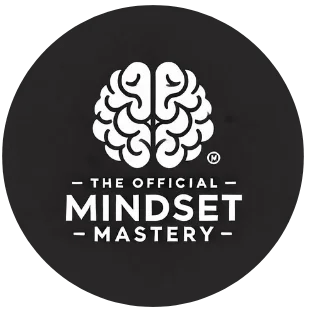Journaling is more than just putting pen to paper. It’s a powerful tool for personal growth and mental clarity that can transform your life. Research shows that regular journaling can reduce stress, improve cognitive function, and even boost physical health. A 2018 study published in the Journal of Experimental Psychology found that journaling about future tasks can help people fall asleep faster.
The transformative power of journaling
Journaling offers a myriad of benefits that can positively impact various aspects of your life. By engaging in this simple yet profound practice, you can unlock your potential and achieve remarkable personal growth.
One of the most significant advantages of journaling is its ability to reduce stress and anxiety. When you put your thoughts and feelings on paper, you create a safe space to process emotions and difficult experiences. This act of expression can help alleviate mental burdens and provide a sense of relief.
Moreover, journaling enhances mental clarity and self-awareness. As you write, you gain insights into your thoughts, behaviors, and patterns. This increased self-understanding can lead to better decision-making and improved personal growth.
Here are some key benefits of journaling:
- Boosts creativity and problem-solving skills
- Creates a record for future reflection
- Improves memory and learning capabilities
- Helps balance work and personal life
- Aids in managing depression and negative thoughts
Interestingly, journaling can even have physical health benefits. Studies have shown that it can help people recover from illness and surgery faster, demonstrating the powerful mind-body connection.
Effective journaling techniques for optimal results
To reap the full benefits of journaling, it’s essential to develop a consistent practice and find techniques that resonate with you. Here are some effective methods to enhance your journaling experience:
1. Stream of consciousness writing: This technique involves writing whatever comes to mind without judgment or censorship. It’s an excellent way to tap into your subconscious and uncover hidden thoughts and feelings.
2. Reflection and contemplation: Set aside time to reflect on your experiences, challenges, and achievements. This practice can lead to valuable insights and personal growth.
3. Gratitude journaling: Focus on the positive aspects of your life by regularly writing about things you’re grateful for. This practice can significantly boost your mood and overall well-being.
4. Goal-setting and planning: Use your journal to set clear objectives and create action plans. This can help you stay focused and motivated in pursuing your dreams.
Thomas Harper, a renowned writer and motivational speaker, emphasizes the importance of finding a routine that works for you. Whether it’s journaling in the morning, evening, or whenever inspiration strikes, consistency is key to building this transformative habit.
Harnessing the science behind journaling
The benefits of journaling aren’t just anecdotal; they’re backed by scientific research. Studies have shown that regular journaling can have profound effects on both mental and physical health.
A 2006 study published in the journal Advances in Psychiatric Treatment found that expressive writing can improve mood disorders and reduce symptoms of depression. The act of writing helps to organize thoughts and give meaning to traumatic experiences, leading to better psychological well-being.
Here’s a breakdown of how journaling affects different aspects of health:
| Health Aspect | Impact of Journaling |
|---|---|
| Mental Health | Reduces symptoms of depression and anxiety |
| Cognitive Function | Improves working memory and problem-solving skills |
| Physical Health | Enhances immune function and speeds up post-surgery recovery |
| Sleep Quality | Improves sleep when journaling about tomorrow’s tasks |
By understanding the science behind journaling, you can approach this practice with confidence, knowing that you’re engaging in a proven method for personal development and mental clarity.
Integrating journaling into your daily life
To fully harness the benefits of journaling, it’s crucial to make it a regular part of your routine. Here are some tips to help you integrate journaling into your daily life:
- Choose the right medium: While digital options are available, many find that using pen and paper provides fewer distractions and a more intimate experience.
- Set a specific time: Whether it’s first thing in the morning or right before bed, having a designated journaling time can help establish the habit.
- Start small: Begin with just a few minutes a day and gradually increase the duration as you become more comfortable with the practice.
- Use prompts: If you’re unsure what to write about, use journaling prompts to spark inspiration and guide your thoughts.
- Review your entries: Periodically review your past entries to track your progress and gain new insights.
Remember, there are no set rules in journaling. Write about your thoughts, feelings, experiences, or goals – whatever feels most meaningful to you. The key is to write freely without judgment, allowing your authentic self to emerge on the page.
As you embark on your journaling journey, keep in mind that consistency is more important than perfection. Even a few minutes of daily writing can lead to significant personal growth and mental clarity over time. Embrace the process, and watch as journaling transforms your life, one entry at a time.





